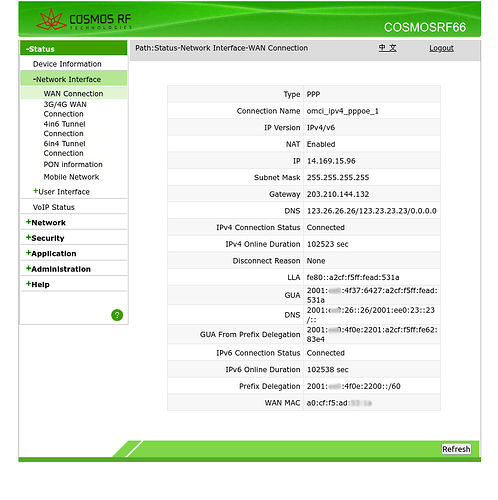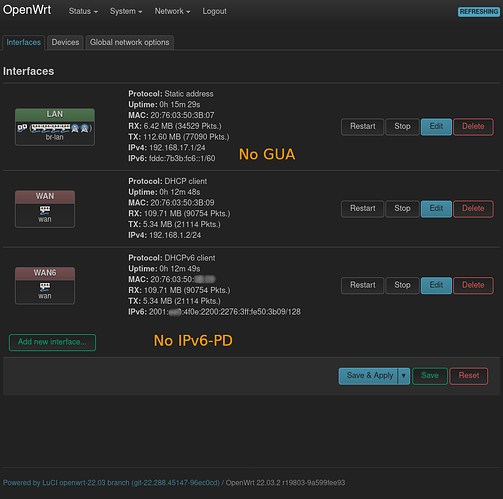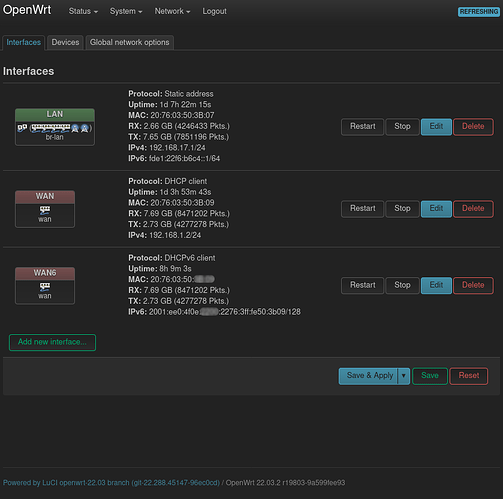Here is the ifstatus result:
{
"up": true,
"pending": false,
"available": true,
"autostart": true,
"dynamic": false,
"uptime": 418,
"l3_device": "wan",
"proto": "dhcpv6",
"device": "wan",
"metric": 0,
"dns_metric": 0,
"delegation": true,
"ipv4-address": [
],
"ipv6-address": [
{
"address": "2001:xxxx:4f0e:2200:2276:3ff:fe50:3b09",
"mask": 128,
"preferred": 70507,
"valid": 70507
}
],
"ipv6-prefix": [
],
"ipv6-prefix-assignment": [
],
"route": [
{
"target": "2001:xxx:4f0e:2200::",
"mask": 64,
"nexthop": "::",
"metric": 256,
"valid": 70506,
"source": "::/0"
},
{
"target": "::",
"mask": 0,
"nexthop": "fe80::1",
"metric": 512,
"valid": 1600,
"source": "2001:xxx:4f0e:2200:2276:3ff:fe50:3b09/128"
}
],
"dns-server": [
"fe80::1"
],
"dns-search": [
],
"neighbors": [
],
"inactive": {
"ipv4-address": [
],
"ipv6-address": [
],
"route": [
],
"dns-server": [
],
"dns-search": [
],
"neighbors": [
]
},
"data": {
"passthru": "000600160015001600170018001f003800400043005e005f006000170010fe800000000000000000000000000001"
}
}
When you redact IPv6 addresses don't cover up the bits that define your sub-prefix (the bits after the first 48, 56 or 60 and before the last 64), those are important for troubleshooting.
Thank you


